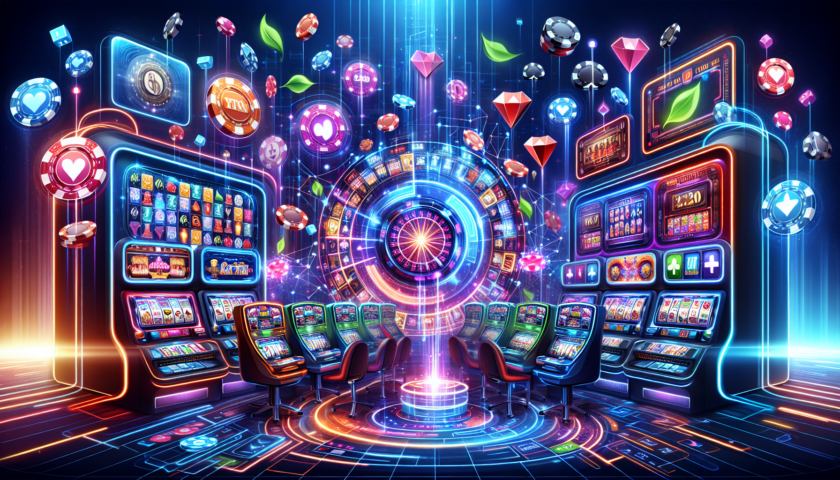In recent years, online gaming has transformed from a niche hobby into a colossal global industry. With the advent of advanced technology, widespread internet access, and the growth of social media, online gaming platforms have emerged as a leading form of entertainment. This article explores the evolution, features, and impact of online gaming METEOR189 on society and the economy.
The Evolution of Online Gaming
Online gaming has its roots in the early days of the internet. In the 1970s and 1980s, text-based games like MUD (Multi-User Dungeon) allowed players to connect and interact in virtual worlds. As technology progressed, graphical interfaces emerged, leading to the development of multiplayer online games such as “Ultima Online” and “EverQuest.” The launch of high-speed internet in the late 1990s and early 2000s facilitated the growth of massively multiplayer online role-playing games (MMORPGs), drawing millions of players into immersive virtual worlds.
The next significant leap came with the introduction of smartphones and mobile gaming. Platforms like iOS and Android democratized gaming, enabling developers to create and distribute games more easily. Titles like “Fortnite,” “PUBG,” and “Among Us” became cultural phenomena, attracting players of all ages and backgrounds. This evolution has paved the way for a diverse range of online gaming platforms, catering to various tastes and preferences.
Key Features of Online Gaming Platforms
- Accessibility: One of the primary advantages of online gaming platforms is their accessibility. Players can access games from anywhere, whether through consoles, PCs, or mobile devices. This flexibility has broadened the gaming audience, making it more inclusive.
- Social Interaction: Online gaming platforms foster social connections. Many games allow players to form communities, join clans, and engage in team-based competitions. Voice and text chat features enhance communication, making gaming a social experience that transcends geographical boundaries.
- Diverse Game Library: Online platforms offer an extensive library of games, from casual titles to competitive esports. Players can explore various genres, including action, adventure, strategy, and puzzle games, catering to different preferences and skill levels.
- Real-Time Updates and Events: Developers frequently update online games with new content, patches, and seasonal events. This dynamic nature keeps players engaged and encourages them to return for fresh experiences, fostering long-term loyalty.
- Monetization Models: Online gaming platforms have adopted diverse monetization strategies, including free-to-play models, subscriptions, and in-game purchases. This approach allows players to choose how they engage with games while supporting developers.
The Economic Impact of Online Gaming
The online gaming industry is a significant contributor to the global economy. According to Newzoo, the gaming market is projected to reach $200 billion by 2023. This growth generates substantial revenue for developers, publishers, and ancillary services, including streaming platforms and merchandise.
Moreover, the rise of esports has transformed gaming into a competitive spectator sport. Major tournaments, such as The International and the League of Legends World Championship, attract millions of viewers and offer substantial prize pools. This has created new career opportunities for players, coaches, analysts, and content creators.
Social and Cultural Implications
Online gaming platforms have also reshaped social interactions and cultural norms. They provide a space for individuals to connect, share experiences, and form friendships. However, the gaming community is not without its challenges. Issues like toxicity, harassment, and addiction have emerged, prompting developers and platform operators to implement measures to create safer and more inclusive environments.
The portrayal of gaming in popular culture has also evolved. Movies, television shows, and literature now frequently feature gaming themes, further legitimizing the medium as a form of entertainment. This recognition has led to the emergence of gaming influencers, streamers, and content creators who shape the industry’s narrative and engage with fans on various platforms.
The Future of Online Gaming Platforms
As technology continues to advance, the future of online gaming platforms looks promising. Emerging technologies like virtual reality (VR) and augmented reality (AR) are poised to revolutionize the gaming experience, offering players immersive worlds that blur the lines between reality and fiction. Cloud gaming services, such as Google Stadia and NVIDIA GeForce Now, promise to make high-quality gaming accessible to a broader audience, regardless of hardware limitations.
Furthermore, the integration of artificial intelligence (AI) and machine learning may enhance gameplay experiences by personalizing content and improving matchmaking algorithms. This can lead to more balanced and enjoyable gaming sessions.
